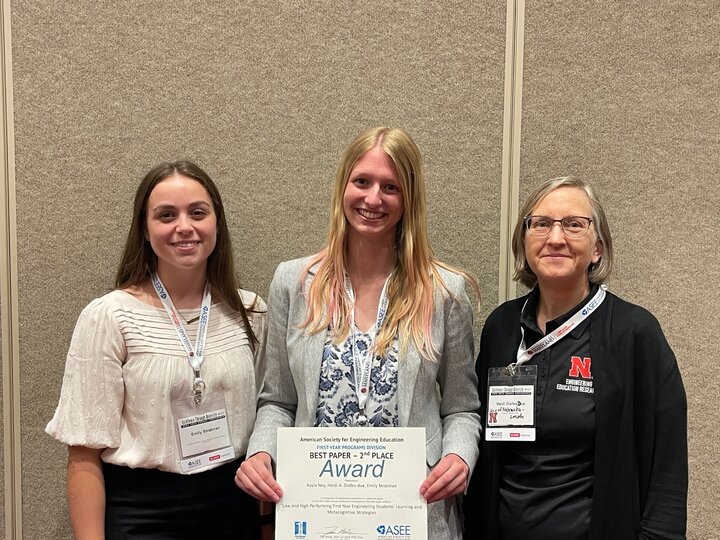| Faculty Advisor |
Heidi Diefes-Dux
|
|---|---|
| Contact Email | heidi.diefes-dux@unl.edu |
| Website | |
| Advisor College: |
Engineering
|
| Potential Student Tasks |
Responsibilities include analyzing data alongside graduate student researchers; reading about metacognition and reflection; preparing text, tables, and figures for presentations and publications. Trainees will attend weekly research team meetings and present their progress twice a semester to the engineering education research community. |
| Student Qualifications |
• Interested in understanding engineering education and engineering education research |
| Training, Mentoring, and Workplace Community |
Trainees will receive systematic foundational instruction on engineering education research and engage in research with a larger research group including faculty, undergraduate, and graduate researchers of varying backgrounds. The aim is to develop independent researchers through involvement in an investigation: understanding research ethics, formulating research questions, conducting data analysis, interpreting results, and documenting findings. Secondary contact: Logan Perry, logan.perry@unl.edu 
|
| Available Positions |
2
|
During an undergraduate engineering degree, students are meant to acquire lifelong learning skills via the transition from highly structured, teacher-led instruction (pedagogy) to partially or minimally structured, instructor-guided project work (towards andragogy). The engineering student experience is one of transitioning from solving well-defined problems to more workplace-like ‘ill-structured problems’ with the aim of preparing students for their future engineering careers. Students who are not in a process of developing an ability to acquire and apply new knowledge by using appropriate learning strategies, as they are also gaining technical knowledge, abilities, and skills, may find this transition daunting. Students can develop self-directed learning capacity through self-reflection. This project entails examining the impact of bringing reflection activities into engineering courses. FYRE participants may learning quantitative or qualitative skills through analysis of students’ written reflections, pre/post surveys, or instructional video viewing habits.